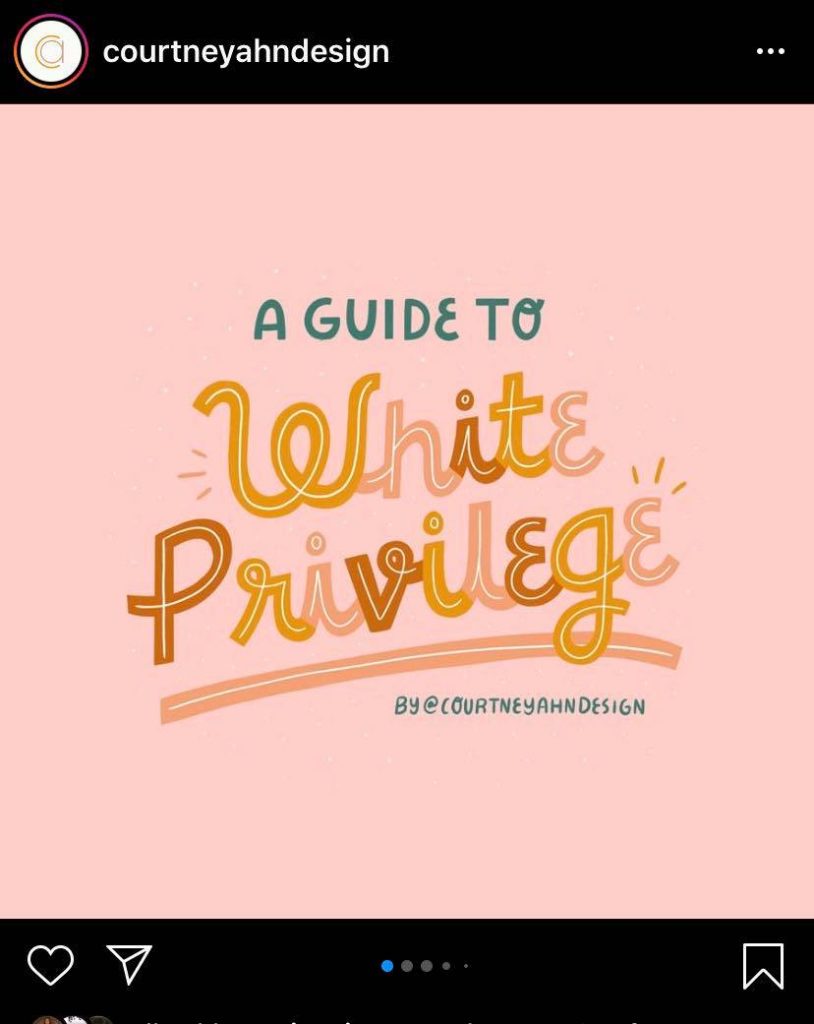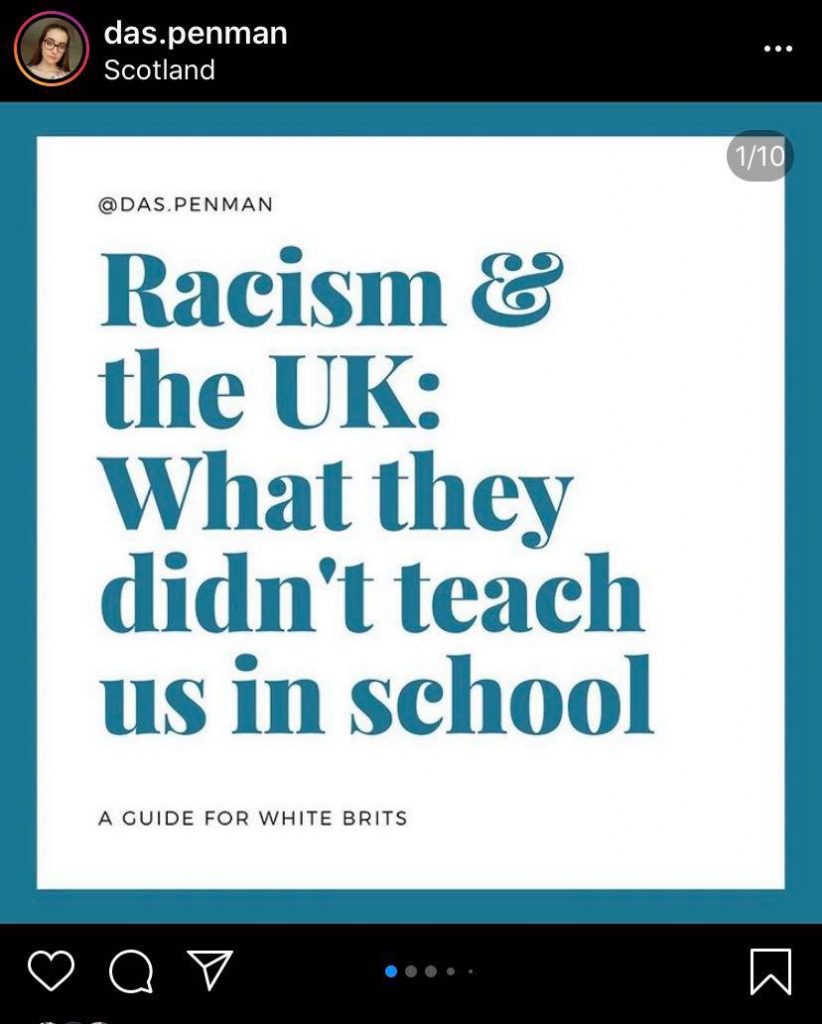Siddy Nicholls (@siddynicholls) is a Newcastle Sociology and Philosophy graduate who, here, writes about the need to make in-depth discussion of racism compulsory in the British education system. Fourth in our ongoing series on Black Lives Matter.
White privilege. A phrase that until very recently, most white people either did not know, or were painfully reluctant to say. Unready to give in to the idea that, due to the colour of their skin, they are in a privileged position. Instead, white people have always been quick to assert that “No! We white people have struggles too! What do you mean we’re privileged?”

If we look back on our compulsory education, it becomes clear that this is something that goes unaddressed. We learn about social disadvantages and disparities largely in peripheral ways through news outlets, TV shows and films. The extent of most people’s knowledge of inequalities is limited to either what they experience or what they passively pick up through the media. But mainstream media very rarely draws attention to race issues or to whiteness and the privilege it brings, meaning that for people who do not experience racism, it can easily go unnoticed. Where attempts are made to bring attention to racism, they are often suppressed. One need only look at the government’s handling of their report on disparities in Covid-19 outcomes for ethnic minorities to see this. The impact of race is silenced and white privilege remains a reticent permeation in white people’s lives.
Systemic silence breeds white privilege, so exposing it is the first step in unraveling it. Until very recently, a critical understanding of white privilege had to be more actively sought out. Yet, with an influx of educational graphics about white privilege across social media and the increasing global awareness of brutal events like the murder of George Floyd, this covertness is hopefully at risk as it is brought into the open. This risk will only be actualised once racial issues become compulsory education, as this information is still largely avoidable. But why would a system teach about a concept that threatens its entire infrastructure? White people becoming aware of their own privilege allows its dismantlement to begin but this requires seismic change. It is intrinsic to white privilege that white people are unconscious of it or can easily deny that it places them at advantage, so undoing race and challenging white privilege poses a threat to the racist system that instilled it in the first place.
If it weren’t for my choice of degree programme and modules, this could easily have been an entirely new concept to me, as it is to many. Although racism has shaped my life, I had not reflected before on the fact that racism truly has no concrete or biological basis but is an entirely constructed reality underpinned by white supremacy. These kinds of discussions had not featured in my school education, in which experiences of racism in Britain did not feature. Following a seminar on my degree programme last year, where I first had an opportunity to discuss critical whiteness and white privilege, all I could think about was how menial the basis of racism is. This insanely unnecessary reliance on inferiority/superiority based simply on skin colour, where the smaller the evidence of blackness, the less disadvantage endured, and the more white privilege prevails.

As a generally white-passing mixed-race person, white privilege and racism have intersected throughout my personal encounters and identity. I have undoubtedly struggled with race-based insecurity. I have resented looking ‘different’ and have straightened the life out of my very curly hair. Yet I am also conscious that my lighter skin is something that places me at an advantage over black friends and family. Whilst my black father was victim of racial slurs, discriminated against in the everyday but also within institutions, I have been complimented for my ‘tanned’, ‘olive’ skin tone. When asked, “Where are you really from?”, it is his belonging that comes into question when my Dad asserts his Caribbean ethnicity. Yet when I disclose I am partly Caribbean I am met with compliments about my ‘exoticness’: “That’s so lucky! I wish I was exotic like you – you must tan so easily”, as though blackness becomes exoticised when diluted with the whiteness and privilege that comes with lighter skin. My mixed-race identity leaves me racialised, while I simultaneously benefit from white privilege. I recognise this and the critical problems with this evidence of race in my own experience, as well as in wider society.
I have seen videos of young boys looking for ‘the right mix’ when asked their opinions on mixed race girls.“I don’t look exotic. I wish I looked exotic”: words of a white YouTube creator taking an ancestry test wishing for just a bit of an ‘exotic’ ancestry. White people fetishizing or glamourising this idea of a little bit of blackness, but not too much. Not enough to the point where it could threaten the white privilege they have. This is the same white privilege and glamourisation in play with instances of cultural appropriation: appropriating the ‘desirable’ elements of black culture while avoiding the racism the community faces with a shield of white skin. This is severely problematic, a dimension of race and white privilege that needs more exposure to threaten its subsistence. Race is social, with whiteness and blackness constructed within systems and disseminated into society. Our task is therefore deconstruction, which relies on systemic changes. It is a lack of education around race that allow these instances of white privilege exertion to persist. My education is what made me recognise this, and necessitating such content nationally will encourage this recognition on an instrumentally larger scale.
There are countless more layers to white privilege than are mentioned here, all of which rely on a collective silencing. White privilege and the general lack of awareness of it is the product of a racist system. A consciousness of one’s privilege and how this relies on the oppression of ethnic minorities is what poses a threat to the system itself, which is why it is so vital to this movement. For this to occur, it is imperative that something in our education changes. Though an incredible tool, we should not be relying on Instagram graphics to educate us on the truths of our society, nor be relying on victims of racism to teach us about it. Already from social media, literature and tragic events like George Floyd’s murder and the deaths of black people in custody in the UK, white people are learning an instrumental amount about systemic and enduring racism. If this same energy and commitment to truth could be pushed to a national, compulsory level through the education system, this threat to society’s racist infrastructure becomes even stronger. Perhaps, and here’s hoping, this movement will draw these humanitarian issues of justice, generally exclusive to social science and humanity studies, into required education. White privilege will become common knowledge and in time become dismantled, along with the racist system that breeds it.
